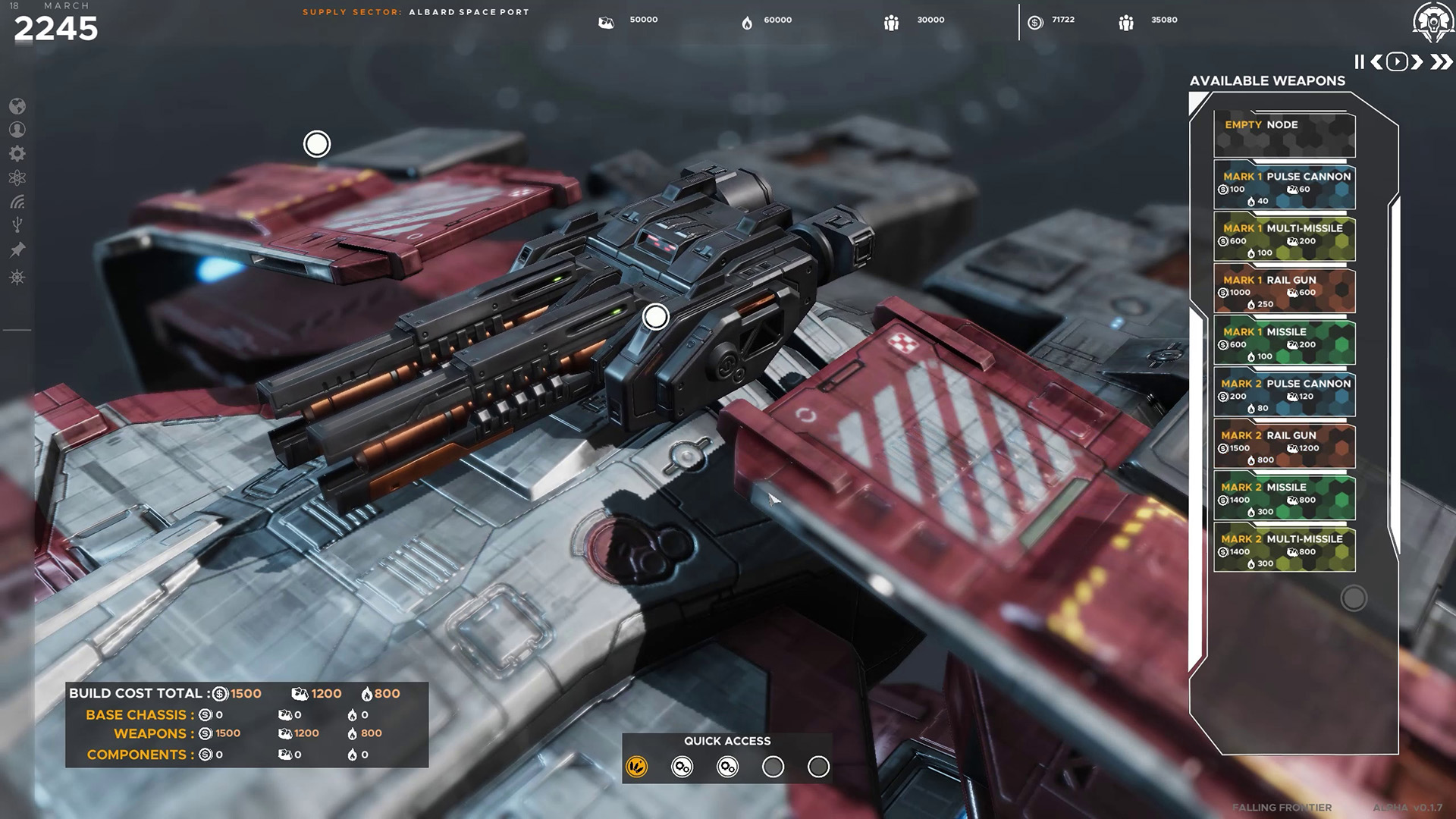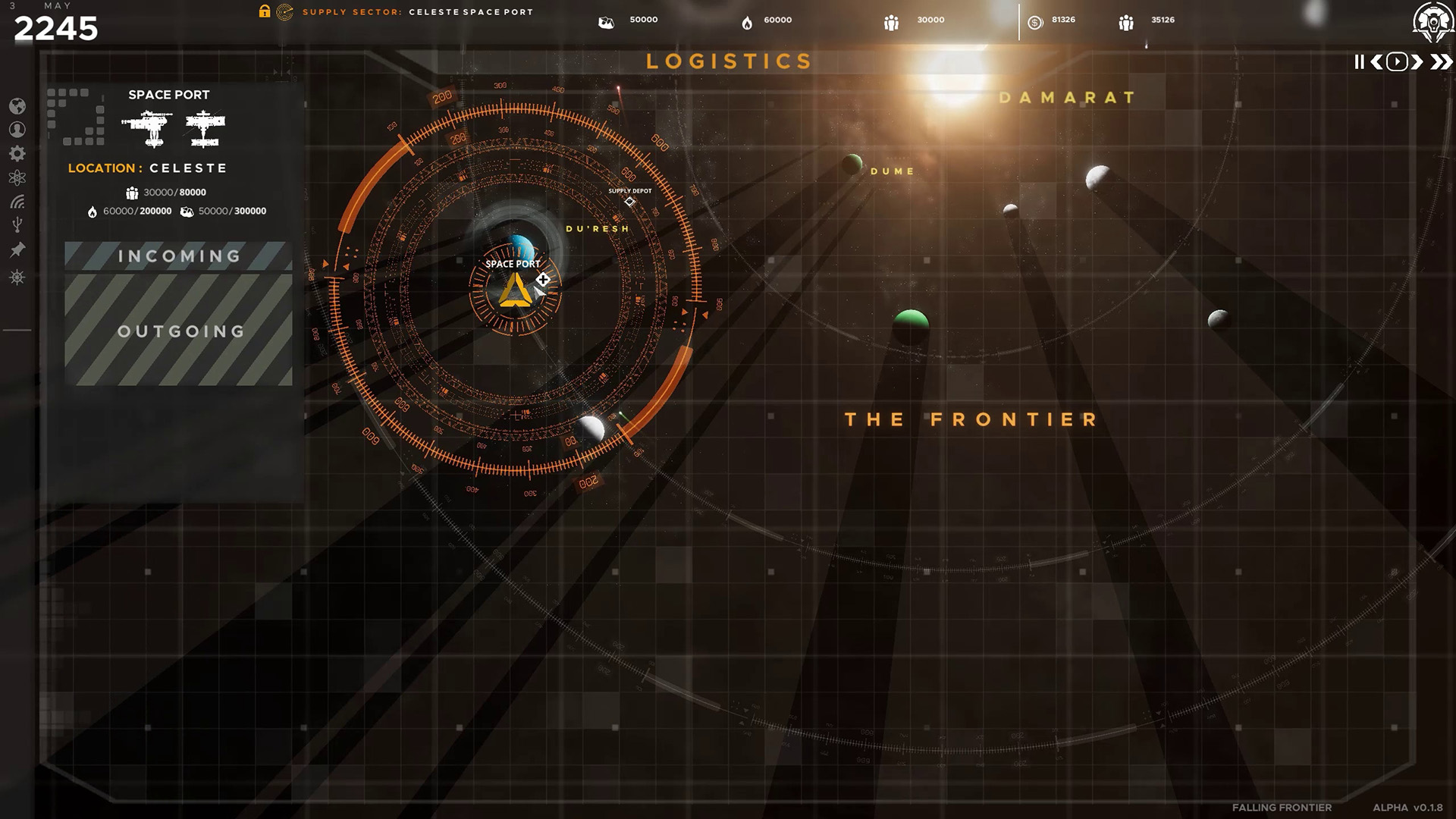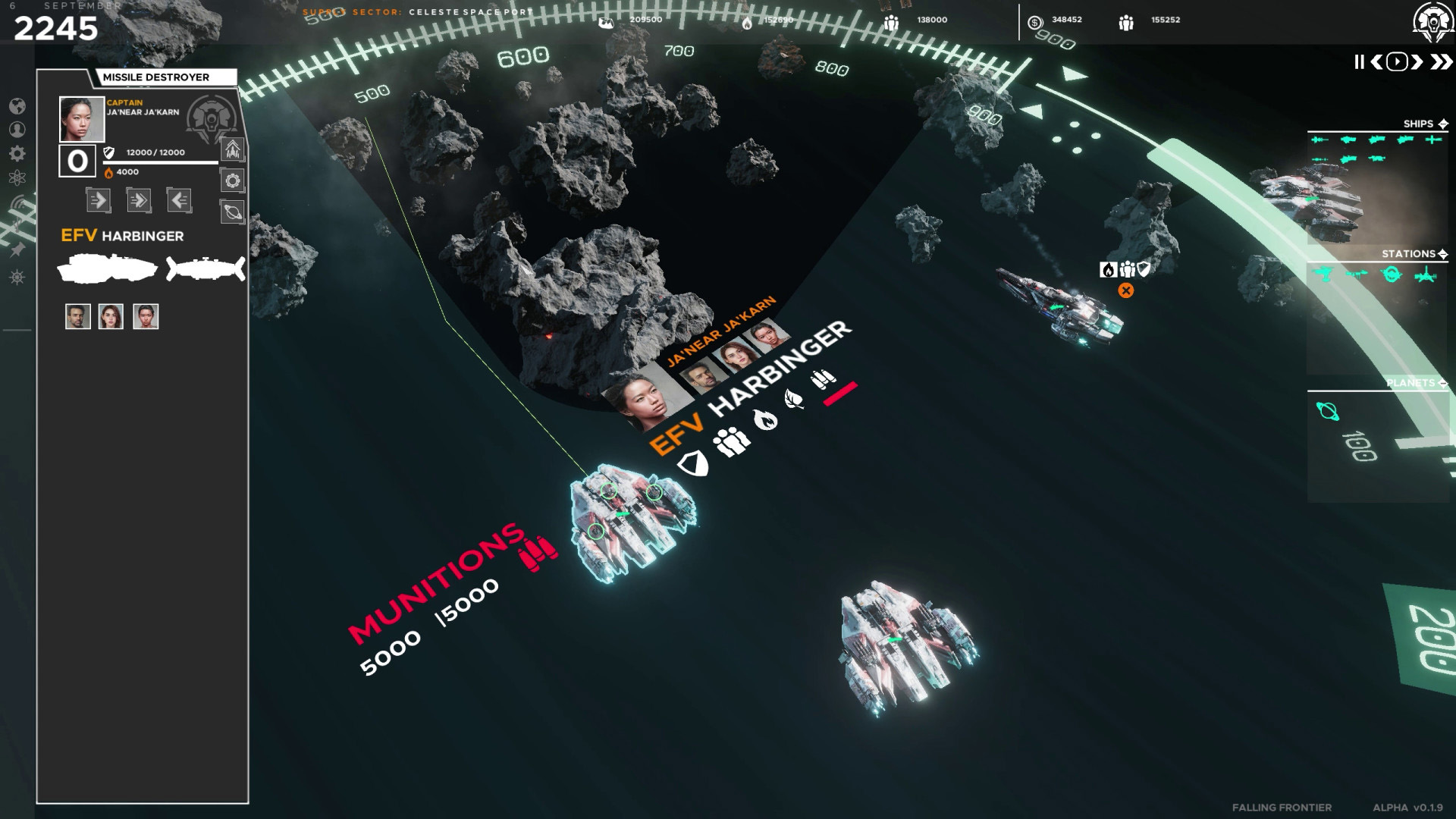When you think of real-time strategy, you might think of building an overwhelming force and obliterating the enemy. While it is an effective tactic, it’s difficult when you are on the receiving end and can’t fight back. It can be demoralizing to continue fighting a battle you can’t win, especially in outer space where resupplying is difficult.
With Falling Frontier, the logistical side of space warfare is present as well. It may not sound exciting, but it provides players with another form of strategy. Instead of leaving players defenceless if they are unsuccessful during the first few encounters, the logistical side of battle provides them with another opportunity to fight. Weakening the enemies through guerilla tactics is a viable strategy, which would seem out of place in more aggressive strategy games.
Opening up the logistical side of warfare also reflects the realities of the battlefield. You aren’t just building an army and sending it to fight. You are keeping people fed, providing fuel for vehicles, and acquiring powerful weapons. Preparing for combat isn’t as simple as having an upkeep meter, and that immerses the player in the planning process.

You are also fighting an information war with your opponent. Both sides will be trying to gather data on each other’s activities to plan their next move. If your opponent gathers more information, they might catch you by surprise because you weren’t prepared. It might be annoying having to fight on two fronts, but it highlights the importance of data in conflict. It demonstrates how having the bigger guns and army isn’t always the recipe for success, but information is key.

Another unique side of Falling Frontier is that battles have an element of randomness. You can predict and certainly plan for outcomes, but you never know what the final outcome of a battle will be. Plans rarely survive contact with the enemy, and you will be responding to unexpected situations that push your tactical skills.

Falling Frontier is a single-player game, and you will be fighting AI opponents. The AI will work with a risk vs. reward computation, where it will choose its battles if it is worth the fight. Rather than constantly throwing enemy after enemy, the AI will consider its moves before it acts. This makes the overall conflict harder to win, but also provides a tactical opponent for players to outsmart.
Challenging opponents that don’t react to traditional real-time strategy rules is an enticing prospect for fans of the genre. Falling Frontier is slated for a 2023 release, and it will be available on PC.





